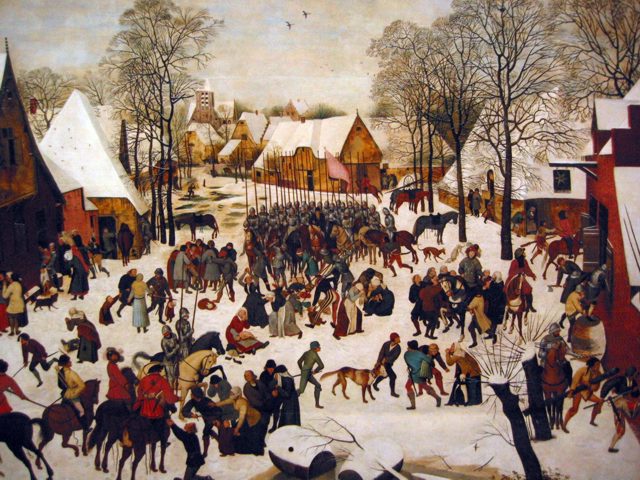
" A voice was heard in Ramah,
wailing and loud lamentation,
Rachel weeping for her children;
she refused to be consoled, because they are no more."
These words are from over two and a half thousand years ago, a Jewish prophet giving a stark warning to the doomed people of Judah. They are quoted by the gospeller Matthew in his account of the nativity. They could be the words used of any number of places in the world today. The lamentations of mothers weeping for their children in the Congo, in Zimbabwe, in the Gaza strip, in Iraq, in Afghanistan. Or what about the mothers of teenagers killed by knives in London, the mother of Rhys Jones, the mother of Rachel Davies, killed by an airgun shot to the eye?
Matthew quoted those words after describing Herod's massacre of all the boys in Bethlehem aged two and under. The historical veracity of the story is awkward in fact, but the meaning is clear enough. The birth of the saviour - of God come to Earth - is placed firmly in a flawed world of murder, corruption, lies and power abuse. The only other writer to tell the nativity story is the gospeller Luke. He has a poor family at the mercy of greater political events, forced to take refuge in the most basic of shelters, and visited by such marginalised figures as shepherds from the hillside. There is much that I take from the nativity narratives (the flawed nature of man; the subversive reversal of roles as those whom the world calls great become marginal, and those whom the world marginalises come to the centre of the stage; the ultimate belief that be he ever so lost God still reaches out to mankind) but their firm rootedness in a world which is so recognisable today is what still gives them their immediacy. Forget the crappy music and tedious jollity, and go back to two short accounts that encapsulate the whole of the gospel story.





